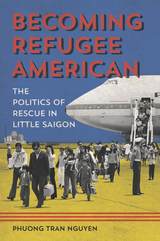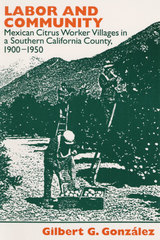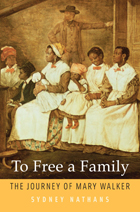
Phuong Tran Nguyen examines the phenomenon of refugee nationalism among Vietnamese Americans in Southern California. Here, the residents of Little Saigon keep alive nostalgia for the old regime and, by extension, their claim to a lost statehood. Their refugee nationalism is less a refusal to assimilate than a mode of becoming, in essence, a distinct group of refugee Americans. Nguyen examines the factors that encouraged them to adopt this identity. His analysis also moves beyond the familiar rescue narrative to chart the intimate yet contentious relationship these Vietnamese Americans have with their adopted homeland. Nguyen sets their plight within the context of the Cold War, an era when Americans sought to atone for broken promises but also saw themselves as providing a sanctuary for people everywhere fleeing communism.


Karin Aguilar-San Juan examines the contradictions of Vietnamese American community and identity in two emblematic yet different locales: Little Saigon in suburban Orange County, California (widely described as the capital of Vietnamese America) and the urban "Vietnamese town" of Fields Corner in Boston, Massachusetts. Their distinctive qualities challenge assumptions about identity and space, growth amid globalization, and processes of Americanization.
With a comparative and race-cognizant approach, Aguilar-San Juan shows how places like Little Saigon and Fields Corner are sites for the simultaneous preservation and redefinition of Vietnamese identity. Intervening in debates about race, ethnicity, multiculturalism, and suburbanization as a form of assimilation, this work elaborates on the significance of place as an integral element of community building and its role in defining Vietnamese American-ness.
Staying Vietnamese, according to Aguilar-San Juan, is not about replicating life in Viet Nam. Rather, it involves moving toward a state of equilibrium that, though always in flux, allows refugees, immigrants, and their U.S.-born offspring to recalibrate their sense of self in order to become Vietnamese anew in places far from their presumed geographic home.

What was it like for a mother to flee slavery, leaving her children behind? To Free a Family tells the remarkable story of Mary Walker, who in August 1848 fled her owner for refuge in the North and spent the next seventeen years trying to recover her family. Her freedom, like that of thousands who escaped from bondage, came at a great price—remorse at parting without a word, fear for her family’s fate.
This story is anchored in two extraordinary collections of letters and diaries, that of her former North Carolina slaveholders and that of the northern family—Susan and Peter Lesley—who protected and employed her. Sydney Nathans’s sensitive and penetrating narrative reveals Mary Walker’s remarkable persistence as well as the sustained collaboration of black and white abolitionists who assisted her. Mary Walker and the Lesleys ventured half a dozen attempts at liberation, from ransom to ruse to rescue, until the end of the Civil War reunited Mary Walker with her son and daughter.
Unlike her more famous counterparts—Harriet Tubman, Harriet Jacobs, and Sojourner Truth—who wrote their own narratives and whose public defiance made them heroines, Mary Walker’s efforts were protracted, wrenching, and private. Her odyssey was more representative of women refugees from bondage who labored secretly and behind the scenes to reclaim their families from the South. In recreating Mary Walker’s journey, To Free a Family gives voice to their hidden epic of emancipation and to an untold story of the Civil War era.
READERS
Browse our collection.
PUBLISHERS
See BiblioVault's publisher services.
STUDENT SERVICES
Files for college accessibility offices.
UChicago Accessibility Resources
home | accessibility | search | about | contact us
BiblioVault ® 2001 - 2024
The University of Chicago Press









